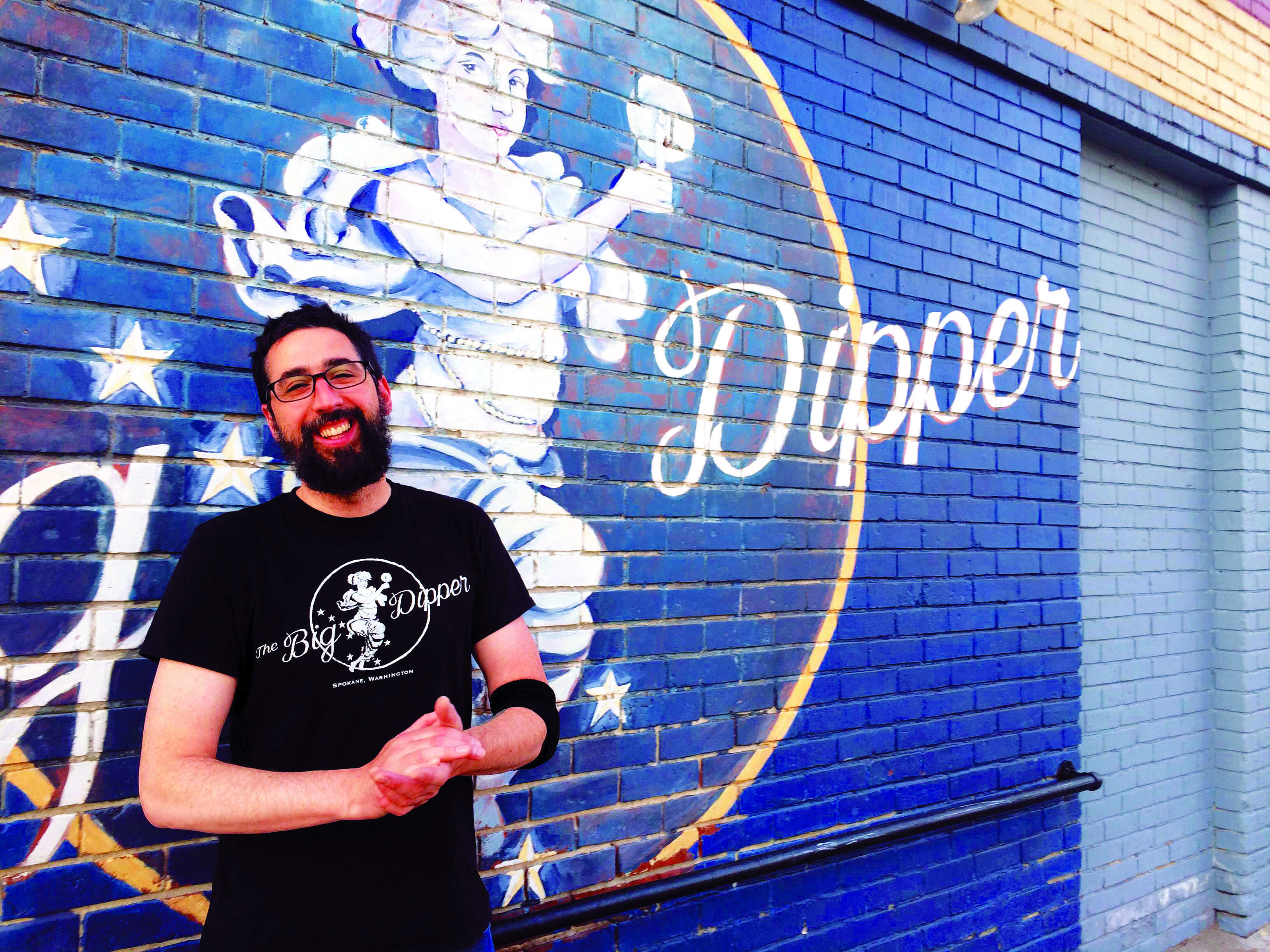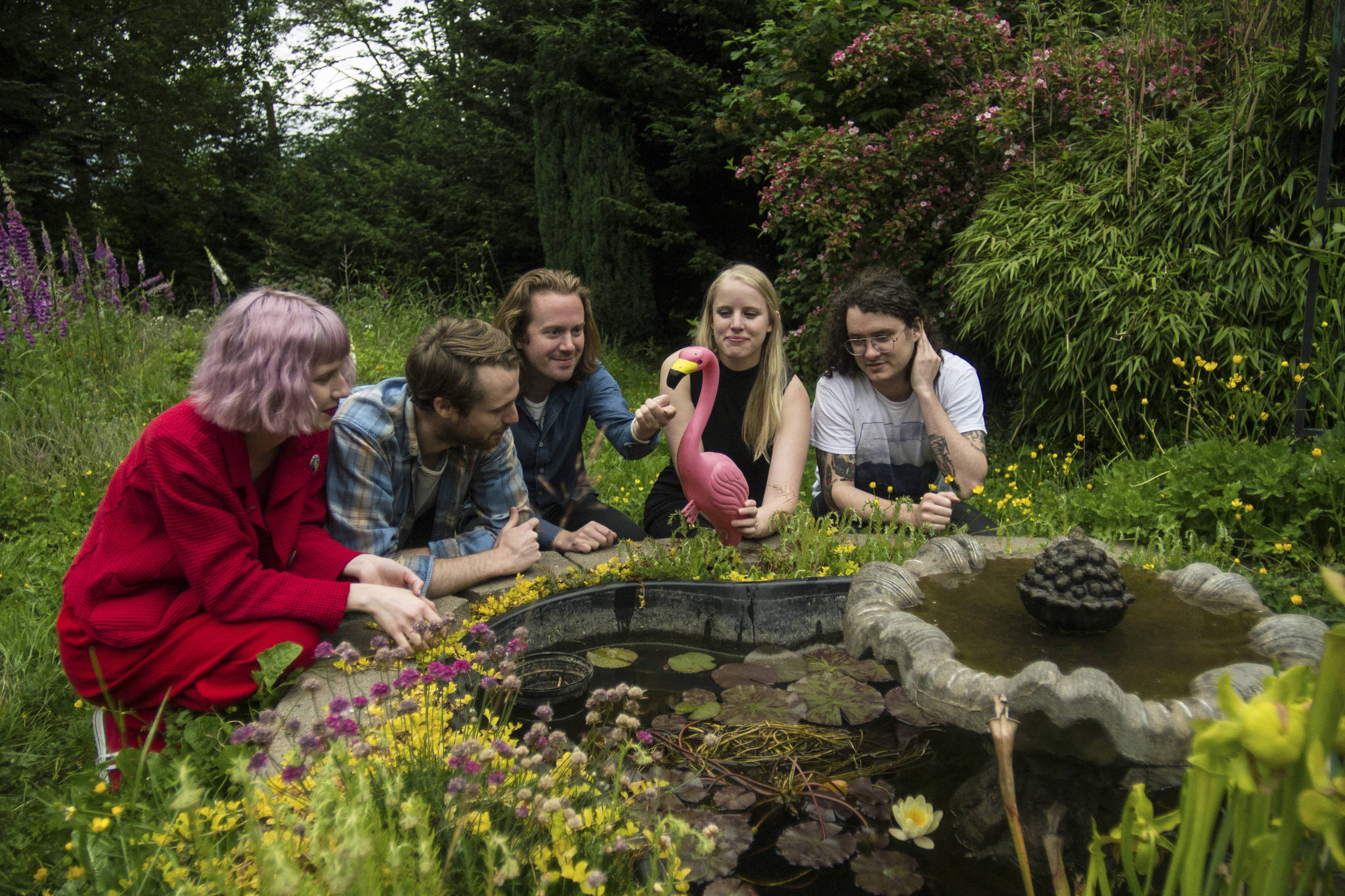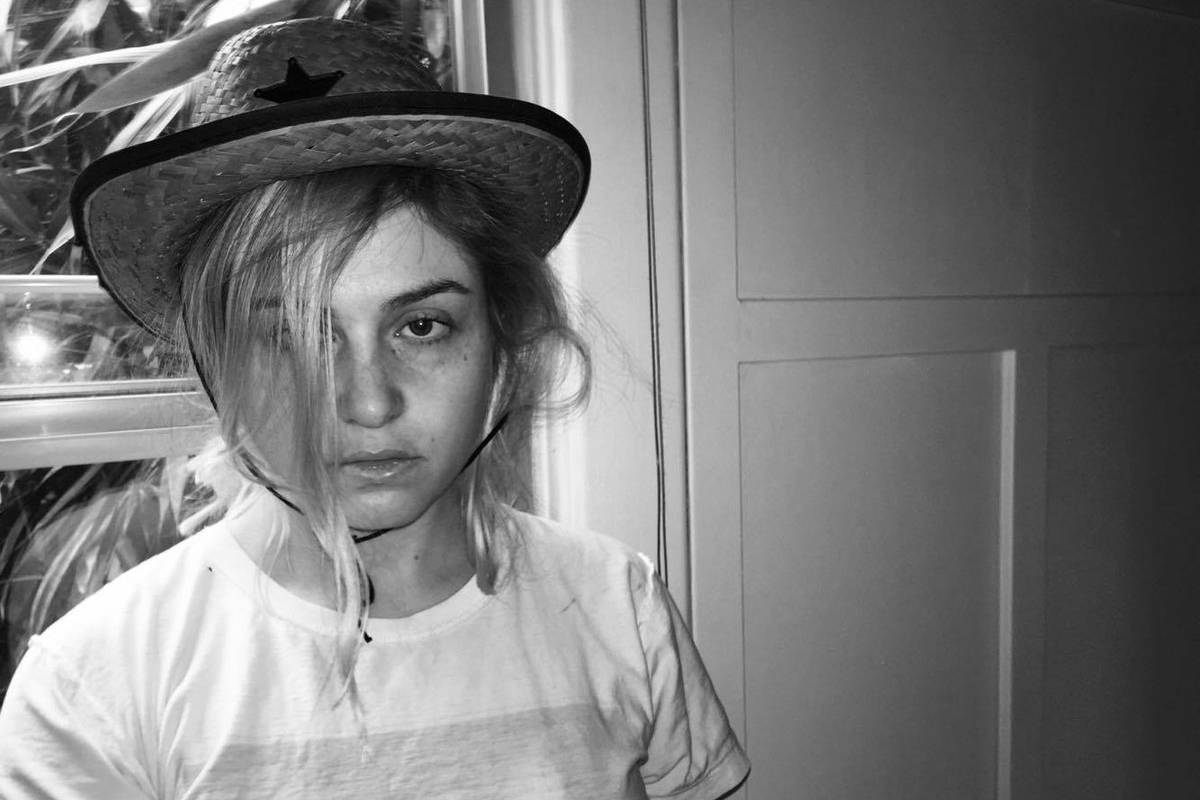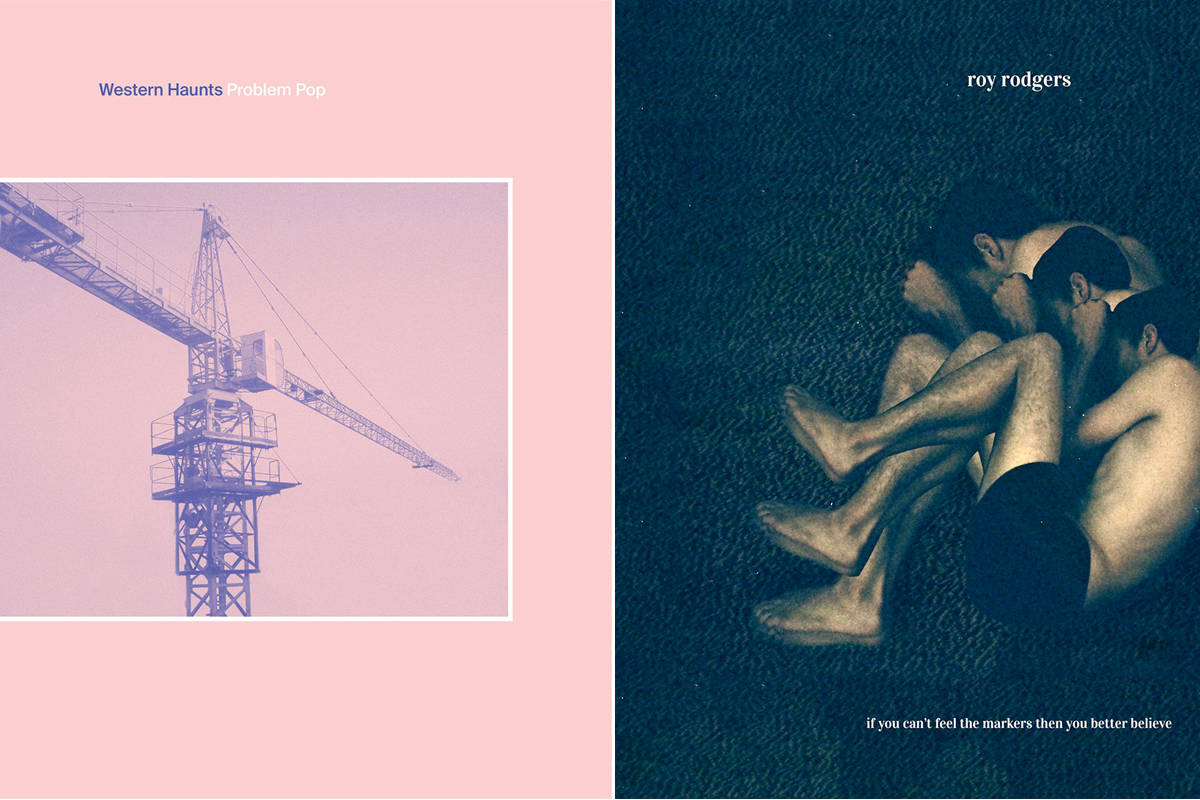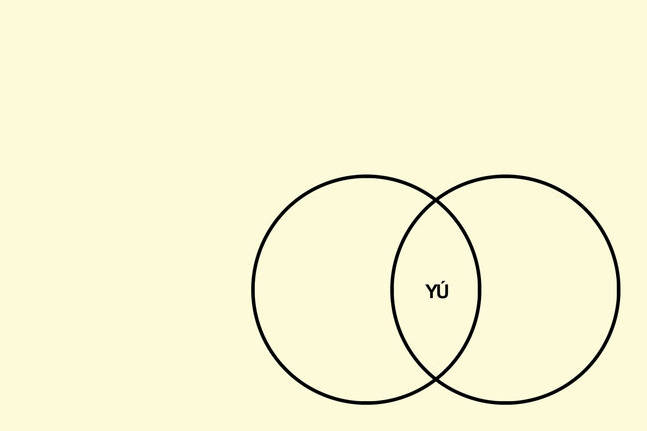It wasn’t until later in the evening on the Fourth of July that I spilled my beer. Somewhere in the distance fireworks were going off, but I was at a table in a bar in Spokane, sitting in a puddle and watching doom metal. I made my way back to the bar for a towel, and the last person I wanted to grovel to was behind the counter: Dan Hoerner, guitarist of Seattle emo band Sunny Day Real Estate and owner of this music venue, The Big Dipper. It probably wouldn’t have been a big deal to anyone else, but this was the guy I drove four hours from Seattle to meet—the artist whose music I’ve worshipped. And there I was, asking him for a cleanup at table five.
Thankfully, that wasn’t my first impression on him. We’d made plans to meet earlier that day while he set up for the evening’s show, to talk about The Big Dipper and how he came to own it. But it’s also the 20th anniversary of Sunny Day’s acclaimed debut album Diary, so I was hoping to get his insights into one of my favorite records of all time.
Hours before I make my beery mess, I arrive to find Hoerner at the bar. He greets me himself, and I realize quickly that he’s a busy guy. When I walk in, he’s just finished checking in the bands and has moved on to washing dishes. He runs up and down the bar as I throw questions at him and lean with his every move, praying my recorder catches everything. Still, even with everything going on, he beams the entire time he tells me about the venue and the Spokane scene.
“We’re a small town,” Hoerner says. “It’s tough to build a cohesive, functioning, exciting scene.”
“It doesn’t have a great track record,” Hoerner says, likely alluding to both the venue and Spokane itself. “I’m not buying this as a great financial move. I bought it because I loved it and they were going to pave it and turn it into a parking lot.” Hoerner, who lived in Seattle during his run with Sunny Day, moved home to Spokane and became a farmer after the band split in 1995. He purchased the club, in shambles, last year, and reopened it in May after seven months of renovation.
First opened in the late ’80s, The Big Dipper is a beloved, historic part of the Spokane scene, well known enough that Hoerner says once word was out that it was open again, he received loads of booking requests from bands that played there in the past. While finding bands to play hasn’t been a problem, building an audience is another story.
“We’re a small town,” Hoerner says. “It’s tough to build a cohesive, functioning, exciting scene of people who are all drawn together to make music and watch music and support music,” he says. “We’ve got a lot of suburbs spread far around that people sort of hide in until they move to the big cities to live their young adult lives.”
It didn’t help things when it was determined the space needed a new sprinkler system to remain viable. Hoerner took to IndieGoGo to crowd-fund the undertaking. “Some people think Spokane’s scene is cursed,” he says in the campaign’s video. “But The Big Dipper was a great club. And it can be a great club again. ”
The venue’s survival remained in jeopardy when the effort ultimately fell short of its goal, raising only $6,150 of the needed $50,000. But then the city of Spokane, inspired to spur more downtown vitality, stepped in to complete the project.
Hoerner was stoked. “What we wanted to happen, happened,” he says.
On that high note, I decide to indulge my fandom and bring up the 20th anniversary of Diary. Hoerner is taken aback: “I didn’t really think about that. Shit, I’m old.” As we start to talk about the band, I discover that Hoerner is not just Sunny Day’s guitar player but also one of the band’s biggest champions. He admits a few reservations about some of the tracks from the group’s later albums, “The Rising Tide” and “How It Feels to Be On Something”, but still has an affinity for the band’s discography and says he’s really proud of Diary, an album still cited as hugely influential in defining emo.
“We wanted people to inform [Diary] with what they wanted to hear in it. It was cool to see people build ideas around it, figure out lyrics in their own mind,” he said.
Since its release, critics, fans, and other bands have been building their own theories about what vocalist Jeremy Enigk’s cryptic lyrics actually mean, viewing the work as a kind of holy sonic template for subsequent emo bands. Its legacy has only grown over the years, and has introduced wide-eyed teenagers—and me, when I discovered it—to a whole other side of punk rock.
“I was really flattered that people gave even one shit about us and wanted to think about us in a larger context,” Hoerner says. “I know I was always a musician who was heavily influenced by musicians, so for us to kind of stand out or even be a part of music is, like, fucking killer, man.”
This is a marked contrast to comments band members have made in the past about being pigeonholed as “emo.” But over the years, Hoerner has softened to the idea of how people regard the band’s music. “When you’re in it, especially when you’re young, you’re like, ‘Don’t label me! Don’t call me emo! Don’t do that! Fuck you, I’m my own thing!’ ” he says. “But now I understand people need to put labels on things to understand them.”
I leave Hoerner to finish up for the evening’s events, and return during a set by Blackwater Prophet, a local Spokane band. The house is packed, with a few people standing and dancing up front. The group is playing scorching, grimy psych music that sounds like it should soundtrack a gunfight in the desert—perfect for this humid and sweltering Independence Day. Most everyone I see is rapt watching the band. As I find a seat, a man turns toward me, points onstage, and says, “God damn!” I see another guy in thick-rimmed glasses run toward the front as the band starts another song, yelling, “This is some new shit!”
Fundraiser kickoff show, featuring Blackwater Prophet. Photo via Big Dipper IndieGoGo Campaign
A cursory glance around reveals a balding man with his shirt off standing in one corner, a man in a shimmering silver vest and white pants dancing feverishly, and a woman quietly water-coloring at a table. In any other situation this would be absurd, but here no one seems fazed. The crowd starts to dwindle after Blackwater Prophet, which is followed by a fiery set from San Francisco metal outfit Castle. I watch as Hoerner wears every hat in the house: helping the bands set up, talking with the sound guy, heading into the kitchen. When Castle hits the stage, he’s right in the middle of the crowd, whooping and cheering at the end of every song.
I start to reflect on what Hoerner said about people growing up in small towns only to leave for someplace more exciting. It’s something I did myself, moving from Port Orchard to Seattle, but back then I didn’t recognize what I’d be missing. Seattle is famous for its exceptional and varied music scene, and it’s often taken for granted. In a town like Spokane where the scene is smaller, everything carries more importance. There aren’t hundreds of bands or venues to choose from, making clubs like The Big Dipper rallying points, outlets, and precious, sacred places.
Diary is in my stereo when I get back to my car. I fast-forward to the slow-moving final track “Sometimes,” and creep through Spokane’s empty streets hoping to catch some belated fireworks. Back in my hotel room, my wife is asleep, and I stare out the window at a blinking radio tower in the distance. I think about the rumbling, low guitar tones on “Sometimes” and about the bands I grew up with that my friends and I followed, much like our own Blackwater Prophet. Whether or not you eventually move away from where you grew up, those kinds of memories will always feel like home. Luckily for music fans in eastern Washington—and me—there’s now one more place in Spokane to make them.
music@seattleweekly.com
